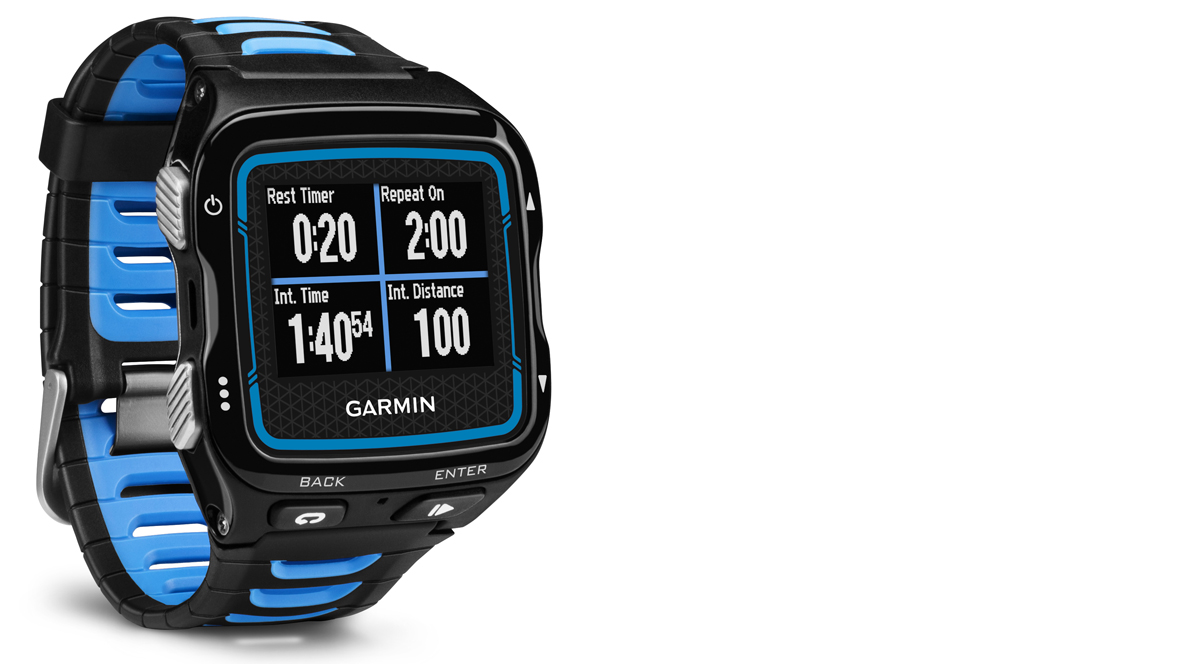TechRadar Verdict
A very powerful watch designed for those who are serious about their swimming, cycling and pavement pounding. The high price reflects that, but is justifiable in this case
Pros
- +
Powerful
- +
Decent battery life
- +
Accurate GPS
Cons
- -
Chunky
- -
Expensive
- -
Phone connection is inconsistent
Why you can trust TechRadar
The idea that we should just "know" our fitness abilities is outdated: the technology exists to rebuild us, though it isn't necessarily cheap. There are a plethora of lower-cost fitness-tracking bands and watches for the aspiring athlete, but the Garmin Forerunner 920XT is something altogether more serious: a powerhouse of a watch that's like a coaching team that sits on your wrist. It's designed to be your perfect companion for running, swimming, cycling or a combination of the three (a triathlon, I think that's called)
So as well as the kind of activity tracking that a band provides – updates on your sleep and daily steps, combined with regular poking to encourage you to do more of the latter – there's also GPS, social connectivity to compare and contrast your activity levels with your fitness buddies and the world at large, plus the option of adding this chic 'n' stylish heart-rate monitor.
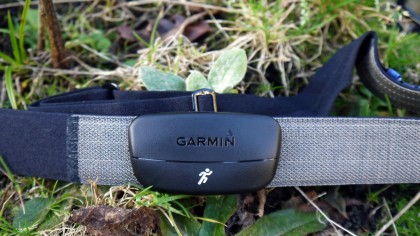
All this power comes at a price, mind you: at £390 for the basic unit and another £80 for the heart rate monitor, which also packs an accelerometer for other clever measurements, you're going to have to really want to know everything about your fitness to shell out.
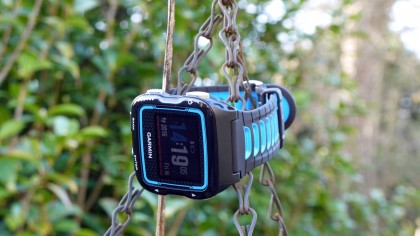
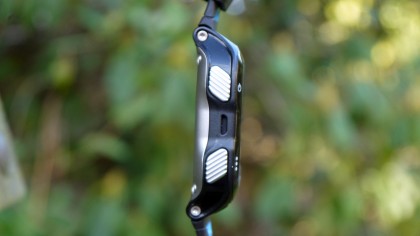
Design
One of the main drawbacks of a GPS-enabled watch has traditionally been its size… and that's not really changed here with the 920XT. It's not unpalatable to wear - I've been happily using it as an actual watch for a couple of weeks - but is much larger than some fitness watches. Garmin's Forerunner 620 is much slimmer for a start, although it's shorn of the swim and cycling compatibility.
The larger size has its advantages, though. Whereas the smaller 920 is touch-based, this has big, easy to hit buttons on the front and side, which are a cinch to find without looking when belting through a brisk 10K.
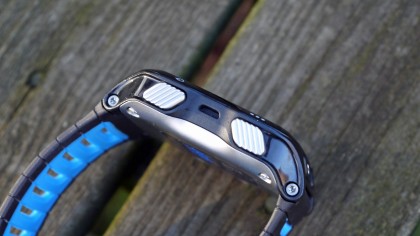
Putting it through its paces
One of the key elements here is the ability to accurately track your runs, and the 920XT has proven to be one of the most in-depth watches I've ever tested. Having spent a long time with its predecessor, the 910XT, I'd already learned that almost every statistic is on offer here, if you're willing to dig around in the menus.
So whether it's laps, average speed, heart rate (with the optional strap), alerts to keep you on pace or even when the gosh darn sun is going to rise, it can all be customised onto the screen, with up to four data fields per display.
The key question many ask with a running watch is: how quickly does it get a GPS fix? The 920XT uses a Bluetooth link to your smartphone to build a better database of location info, and this often helps it lock on really quickly – even indoors at times. However when there are a large number of buildings around, it can take an oddly long time to click in.
Overall, the average time taken wasn't terrible by any means - and the smartphone link-up certainly helped with accuracy.
When finally out running, the 920XT was rather strict in its measurement - erring slightly on the stingy side in terms of distance run, I at least always felt confident that I'd completed my distance if I listened to the drill sergeant on my wrist.
It was similarly excellent at tracking cycling, and if you're willing to invest in ANT+ power meters or speed sensors, you'll get a lot more from the watch. It even has the ability to twist into multiple cycling mounts if you're willing to get the screwdriver out (which isn't as onerous a task as you might think) giving you an excellent cycling computer.
Although I wasn't able to test the swimming ability of the 920XT, if it builds on the excellent power of the 910XT you'll easily be able to track your performance in the pool or in open water - although the latter can't really make good use of the GPS tracking as all that pesky H2O gets in the way.
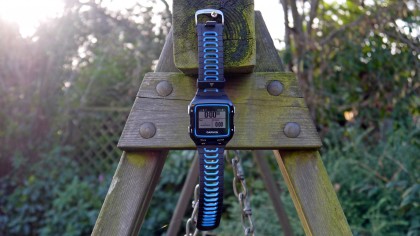
Track fantastic
The Garmin ForeRunner 920XT also offers a number of other treats that will appeal to both the fitness newbie and seasoned pro alike. The simple upgrade is as an activity tracker, being able to tell your steps and then autoplacing you into similar groups online so you can try and run around more than the next person, in order to ascend an ad hoc league table.
The same functionality also tracks sleep, although you have to manually enter your period of slumber and, as always with sleep tracking, once you've got the data it's hard to know what to do with it.
The more advanced stuff is useful too: VO2 Max lets you know how much fitter you're getting, and over time the watch becomes more adept at working out your abilities. It's not perfect, and the predicted race times it generates are more a target than where you are right now in your training, but it's a useful tool for those trying to regain some semblance of fitness as it's automatic.
Swimming
I've used this watch during a triathlon, but a lot of that prep was used for swimming. The watch is pretty good for tracking lengths or working in the open water, but for the latter it's relatively useless at working out how far you've gone.
The GPS is shorted out by the water, so it's a VERY rough approximation of your pace and distance. It's only any use for reminding yourself where you've been.
In the pool, it's different. You'll need to calibrate it to the length of the pool (and irritatingly it's limited to 17m, which won't help those with smaller training pools).
The length tracking is the most useful feature, where it can tell you how many times you've gone up and down the pool. However, I found that if you went over 12 it would invariably miss one here and there, so you'd miss your distance by 25m mostly.
The SWOLF meter is good at tracking your effort / pace by taking an average of how many strokes each length is taking - it takes a while to work out how useful this really is until you've used it multiple times, but it's a decent metric to try to beat.
Again, the Garmin 920XT is great for tracking swimming - it's not super, super accurate and I've no idea why it misses some lengths, but now it's going to have a heart rate monitor that can work in the water, it's going to be supercharged for training.

Gareth has been part of the consumer technology world in a career spanning three decades. He started life as a staff writer on the fledgling TechRadar, and has grew with the site (primarily as phones, tablets and wearables editor) until becoming Global Editor in Chief in 2018. Gareth has written over 4,000 articles for TechRadar, has contributed expert insight to a number of other publications, chaired panels on zeitgeist technologies, presented at the Gadget Show Live as well as representing the brand on TV and radio for multiple channels including Sky, BBC, ITV and Al-Jazeera. Passionate about fitness, he can bore anyone rigid about stress management, sleep tracking, heart rate variance as well as bemoaning something about the latest iPhone, Galaxy or OLED TV.
